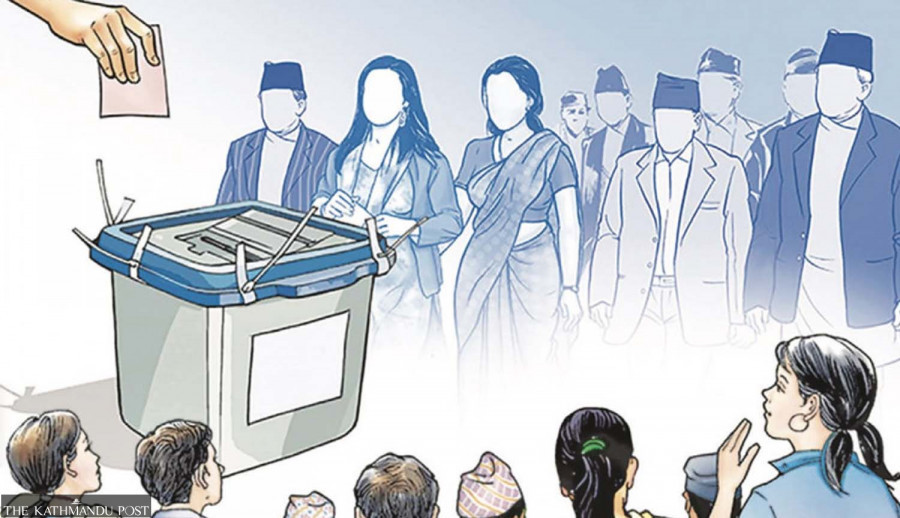Editorial
Wives, cronies and company
Old parties’ leaders have given more ammunition to those who argue that PR is irredeemably corrupt.
After months-long bickering over the selection of candidates for lawmakers under proportional representation (PR), the seven political parties that qualified for PR seats submitted their lists of choices on Saturday night. As in the past, the major political parties have disappointed many by not making appointments as per the spirit of inclusiveness incorporated in the new constitution. The PR system was adopted after years-long debates to ensure representation of historically underrepresented or never-represented sections of society. However, the PR lists are filled with the kith and kin of powerful leaders, big financiers and party-hopping opportunists. Such activities only substantiate suspicions of fishy dealings in the PR candidate selection process.
Despite strong protest within the party, Nepali Congress president Sher Bahadur Deuba picked his wife Arzu Rana and other leaders close to him. Deuba and his team also selected Manju Khand, wife of Home Minister Balkrishna Khand, from the women category. Many attributed Khand's loss in the November 20 polls to voter dissatisfaction over the inclusion of his wife in the PR list in place of more deserving party members. Arzu Rana had become a lawmaker from the same category in the first Constituent Assembly, but she lost in the direct elections when she fought from Kailali in 2017. And among the Madheshi and Khas-Arya clusters, Deuba gave priority to the likes of Bimalendra Nidhi and Prakash Sharan Mahat who are his staunch supporters even though they have become lawmakers multiple times.
Ditto for the CPN-UML. Though the second largest party seems to have been more liberal in terms of giving space to women, its leadership has been criticised for picking “opportunists” who joined the party just ahead of the elections on the condition of getting PR tickets. Eknath Dhakal of Nepal Paribar Dal and Amrita Devi Agrahari had, for instance, joined the UML in this vein. Even the Maoist Centre leadership that claims to be the vanguard of the country’s inclusion agenda has fallen to similar base temptations.
The first-past-the-post (FPTP) elections have become increasingly costly, so much so that some leaders have publicly announced they will not participate in them as they don’t have truckloads of money to finance their campaigns. Citing the extremely high costs, some election experts have even suggested a full PR system for the country. But not if the top leaders continue to use it for personal gain instead of creating a diverse Parliament that is truly reflective of the country’s rich ethnic and gender diversity. In the recent elections, people expressed their frustration with the traditional political forces. Proper selection of the PR candidates could have been a chance to show that the parties are in tune with the public mood. But Nepal’s top political leadership apparently does not give much heed to public sentiment, especially if the voters are not being asked to directly endorse their candidates.
In sum, the old leaders of old parties have given more ammunition to those who argue that PR is irredeemably corrupt and should be done away with. That would be a disaster in a country where large sections of society continue to be excluded from important state bodies.




 18.12°C Kathmandu
18.12°C Kathmandu














